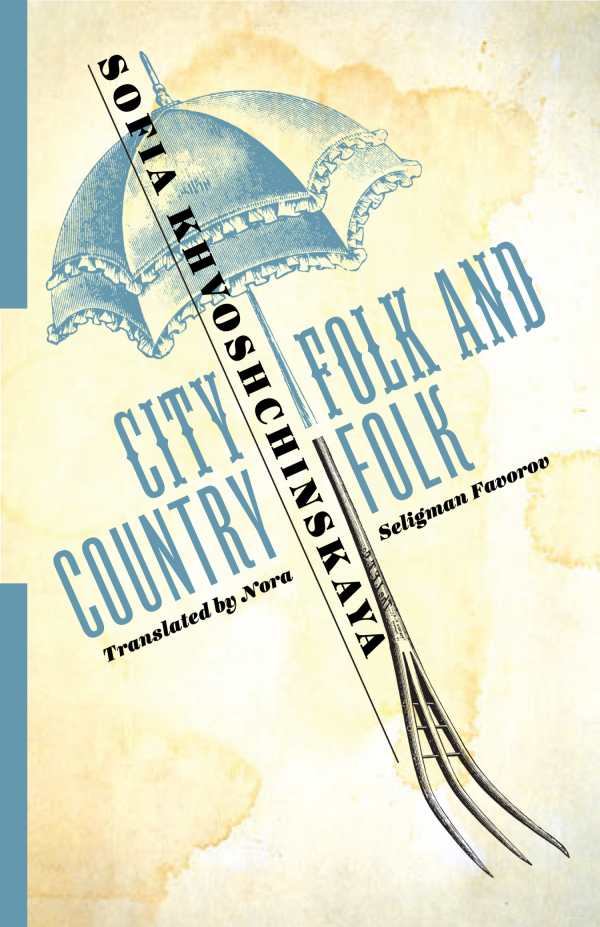City Folk and Country Folk
Quietly masterful, the novel contains rich details of nineteenth-century Russian life.
Sofia Khvoshchinskaya’s City Folk and Country Folk is a slyly captivating, contemporaneous novel of mid-nineteenth-century Russia. Khvoshchinskaya initially authored the work under a male pseudonym, and this translation by Nora Seligman Favorov marks the book’s first appearance in English.
Set in the not always pastoral village of Snetki, the story begins the year after Tsar Alexander II liberated the nation’s peasant serfs. When Erast Sergeyovich Ovcharov arrives in Snetki in his grand Viennese carriage, he has the intention of surveying his familial estate and perhaps spending the summer in the country to benefit his frail health.
Ovcharov is an intellectual aesthete otherwise used to living in Moscow or traveling through Europe. Finding his manor uninhabitable, he decides to rent a small house on the property of his Snetki neighbor, Nastasya Ivanovna Chulkova.
Nastasya is a capable and good-hearted widow who manages her own estate, livestock, and orchards with skill. Her seventeen-year-old daughter Olenka is a bit more difficult to manage, but Olenka’s forthright nature and confidence are endearing to her mother, who would prefer that her daughter be happily married than well married.
Though the novel’s tone is generally witty and subtly sarcastic, a sociopolitical grounding lends weight to the plot without becoming intrusive. The fussy, pedantic Ovcharov is more curiously humorous than unlikable, while Nastasya and Olenka represent strong, principled women who try to live on their own terms rather than being manipulative social climbers.
Khvoshchinskaya’s characters are finely developed, but it is Ovcharov who dominates the narrative and who is deliciously and mockingly portrayed. Living in a simple country manner for Ovcharov involves bringing along tapestries, rugs, candlesticks, curtains, toiletries, and a summer wardrobe. He claims to prefer the submissive and deferential women of previous decades, yet he isn’t above pursuing youthfully attractive Olenka.
Another sophisticate, Katerina Petrovna, flaunts her noble status while otherwise putting on false airs, weaving webs of false intentions, and regularly applying false hair dye to cover up the gray.
In a quietly masterful way, City Folk and Country Folk combines wit, intelligence, and a keen knowledge of human nature with rich details of nineteenth-century Russian culture and rural life.
Reviewed by
Meg Nola
Disclosure: This article is not an endorsement, but a review. The publisher of this book provided free copies of the book to have their book reviewed by a professional reviewer. No fee was paid by the publisher for this review. Foreword Reviews only recommends books that we love. Foreword Magazine, Inc. is disclosing this in accordance with the Federal Trade Commission’s 16 CFR, Part 255.

